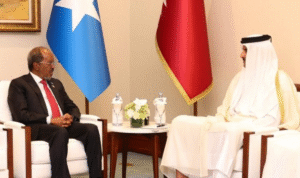In the latest chapter of Egypt’s prolonged crackdown on dissent, Laila Soueif, the mother of detained British-Egyptian activist Alaa Abd el-Fattah, has embarked on a hunger strike. Her courageous protest calls for urgent attention to her son’s plight as his imprisonment has come to embody the broader suppression of human rights in Egypt.
A figure whose activism dates back to the 2011 Egyptian Revolution, Abd el-Fattah has endured a series of legal battles and detentions over the past decade. His most recent incarceration stems from charges that many international observers view as politically motivated, designed to silence a prominent voice critical of the government.
Laila Soueif, herself a notable human rights advocate, decided to take drastic action as her son’s situation grows increasingly dire. “My hunger strike is my voice,” she declared through a statement, highlighting the desperation and urgency she feels in seeking justice for her son and drawing attention to the hundreds of other political prisoners in the country.
Her decision to adopt a hunger strike parallels the historical use of such protests by dissenters worldwide, signaling an intensified plea for international pressure on the Egyptian government. Soueif’s protest echoes through the walls of Cairo’s notorious Tora Prison, where Abd el-Fattah’s health condition is reported to be alarming due to a prolonged hunger strike of his own.
Abd el-Fattah’s plight has garnered significant international focus, with human rights organizations and foreign governments calling on Egypt to release him. Yet, despite widespread condemnation, the Egyptian government remains steadfast. This latest move by Soueif aims to reignite a sense of urgency among global stakeholders, encouraging more decisive action.
Her efforts coincide with diplomatic discussions between Egypt and various Western nations, where human rights have been a contentious topic. Although the discussions have yet to yield significant results, Soueif and supporters hope that increased public pressure might catalyze substantial change.
Soueif’s hunger strike serves as a stark reminder of the lengths to which families of political prisoners are driven in their quest for justice in Egypt’s turbulent political landscape. It remains to be seen whether this latest appeal will provoke a shift in the status quo, but Soueif’s unwavering resolve continues to inspire a broader conversation about human rights and freedom in Egypt. In a region rife with complex politics, her actions have once again thrust the issues of repression and liberty into the international spotlight.







Comment